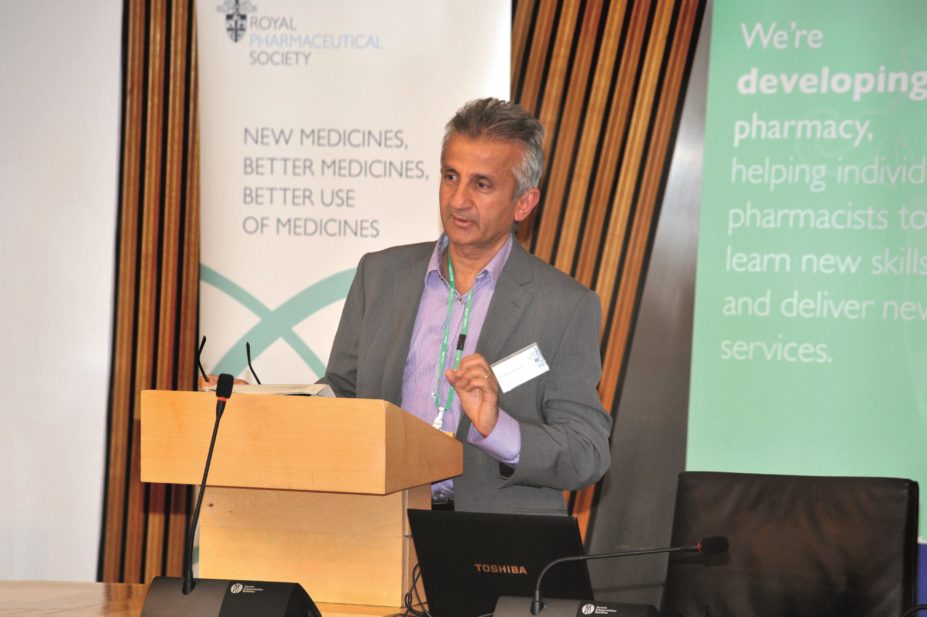
Steven Parry Donald Photography
Members of the Scottish Parliament are set to hold a debate on the challenges posed by Antimicrobial resistance, after a motion inspired by a Royal Pharmaceutical Society (RPS) Scotland event received cross-party support.
The debate, due to take place at the Scottish Parliament in Edinburgh in early 2015, will focus on current and future efforts to overcome the challenges posed by rising antimicrobial drug resistance.
It was prompted by cross-party support for a motion noting the current challenges and the need for further action, which was proposed on Wednesday 19 November 2014 by Jim Eadie MSP (Edinburgh Southern, Scottish National Party).
The motion acknowledges progress in reducing antibiotic use in NHS Scotland in 2013–2014. It also notes the recent calls for governments, academia, the pharmaceutical industry and other stakeholders to work together to create a new funding model that can encourage the development of novel antibiotics. So far it has received cross-party support from 26 MSPs.
The motion reflected issues raised at an RPS Scotland event, ‘The epidemic of antimicrobial resistance — is there a solution?’, held at the Scottish Parliament on European Antibiotic Awareness Day on 18 November 2014.
Dilip Nathwani, consultant physician in Dundee and chairman of the Scottish Antimicrobial Prescribing Group (SAGP), said the dangers posed by Antibiotic resistance were already apparent in other countries.
“Imagine a scenario where you have a boy, he gets tonsillitis and you can’t treat that episode, and he goes on to have a horrendous bunch of complications,” he said. “Imagine your wife going for routine cancer treatment — without antibiotics, she would not survive that. This is the scenario in many parts of Africa, in many Indian, Chinese and South East Asian hospitals.”
Nathwani argued that greater use of C-reactive protein tests in general practice would help to determine suitability for antibiotic treatment and reduce unnecessary prescribing. “We need to get this technology into our healthcare systems much more quickly, much more efficiently than we are doing now,” he said.
Experts stressed that the health service must be realistic about the extent to which it can reverse rising levels of resistance.
Jayne Lawrence, chief scientist at the RPS, said: “I think we’ve got to realise that we’re going to be fighting a constant battle; it’s not a war that we will win. We constantly have to be very careful about how we use antibiotics and development of new ones.”
Christine Bond, professor of primary care pharmacy at the University of Aberdeen, said better education for patients on the use of antimicrobials is also needed. “We need to help them understand when it is and isn’t appropriate to take an antibiotic, and help them understand why,” she said. “We need to also encourage further development of antibiotics stewardship initiatives: coordinated area-wide approaches that use the evidence to make sure we support appropriate antibiotic prescribing.”
Bond said the discovery and development of new antibiotics was the biggest challenge. “At the moment, the current arrangements for the development of new drugs are not commercially attractive for the pharmaceutical industry to bring on-stream new antibiotics.”
New partnerships — including with academia — new funding arrangements and new special financial incentives were needed, she added.
This view was supported by James Anderson, director of European partnerships at GlaxoSmithKline. “What industry does need to do is make sure new drugs are coming through the pipeline,” he said.
The traditional price-volume paradigm for how companies are paid when they successfully develop new drugs “simply doesn’t work” with antibiotics, and new models of funding are needed, he added.
Alistair Leanord, consultant medical microbiologist at Southern General Hospital and adviser to the Scottish Government, said the full range of effective antibiotic agents should be considered for treatment, as the overuse of broad-spectrum antibiotics has contributed to the rise of resistance in some bacteria.
Attendees heard how efforts to reduce antibiotic use in Scotland had led to a 6.5% reduction in primary care prescribing in 2013–2014, but that hospital prescribing had continued to rise.
Jacqueline Sneddon, project lead for the SAGP, said better patient-level prescribing data in hospitals would help to track antibiotic use more effectively and identify patterns of overprescribing. Introducing electronic
prescribing into all hospitals would be key to solving this, she added.
Attendees were encouraged to become an ‘Antibiotic Guardian’ as part of a health promotion campaign organised by Public Health England.
You may also be interested in
Long service of members

Membership fees 2022
